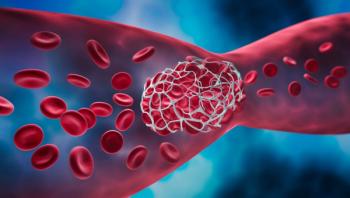
Hemophilia Community Takes Aim at Alternative Funding Companies
The National Bleeding Disorders Foundation (NBDF) has joined a petition demanding that Payer Matrix stop representing itself as a patient advocacy organization.
As the federal government launches into drug price negotiation, a controversial form of drug price discounting is under increasing scrutiny.
The National Bleeding Disorders Foundation (NBDF), which represents patients with hemophilia and their advocates, has joined a petition demanding that Payer Matrix stop representing itself as a patient advocacy organization.
Payer Matrix, based in Media, Pennsylvania, is what is known as an alternative funding company. On behalf of employers and payers it enrolls patients in manufacturers’ patient assistance programs (PAPs).
Alternative funding companies are under fire because to qualify patients for PAPs and charity assistance, they ask payers to selectively disqualify patients for coverage. This enables the alternative funding company to obtain a drug for free by representing to a PAP or charity that the patient has no coverage for that medicine.
Payer Matrix was sued this year by AbbVie, which alleged that such practices are misleading, harmful to patients, and fraudulent.
In a public response to the lawsuit, Payer Matrix called the allegations “meritless” and identified itself as a “leading patient advocate.”
The NBDF, formerly the National Hemophilia Foundation, took issue with this appellation, contending Payer Matrix was very far from a good fit for the term “patient advocate.”
“Payer Matrix profits each time it successfully enrolls a patient in a PAP. As such, we believe it is highly inappropriate and misleading to consumers for Payer Matrix to classify itself as either a patient advocacy company or a leading patient advocate. Payer Matrix is a for-profit business representing the interests of employers and itself, not patients,” the NBDF said.
In a webinar on “specialty drug carve-outs,” drug pricing expert Adam J. Fein, Ph.D., called the alternative payment business “shady,” saying it nets high profits for companies such as ImpaxRx, PaydHealth, PayerMatrix, RxFree4me, SHARx, but depletes PAP and charity dollars more rapidly and potentially leaves truly needy patients without access to essential medications.
Payer Matrix did not immediately return a call from Managed Healthcare Executive, but in its May 2020 press statement it said its mission and business practices were fundamentally misunderstood.
"We will vigorously defend our business and our clients against the scurrilous claims by AbbVie and use this as an opportunity to demonstrate the tremendous value our advocacy services deliver for the people who depend on these exorbitantly priced medicines,” the company said.
AbbVie contended that one reason why the business model is fraudulent is that patients are still technically covered even if they fail to qualify for PAPs. Alternative funding companies effectively switch off commercial coverage for specialty drugs so patients can apply for PAP or charity care. If they don't get it, their commercial coverage is switched back on, AbbVie said.
Newsletter
Get the latest industry news, event updates, and more from Managed healthcare Executive.























